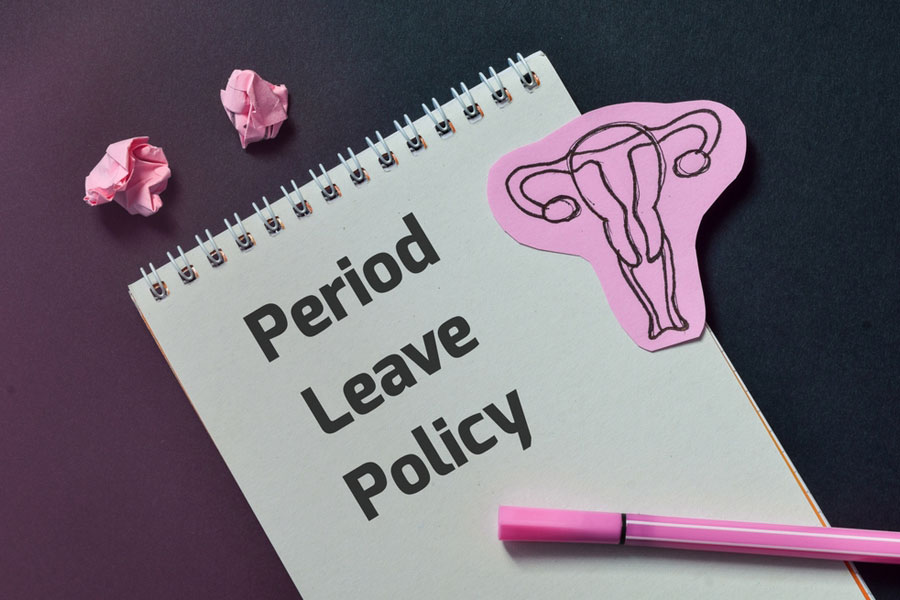Globally in the professional environment and in the educational field women are confronted with high societal stigma over menstrual cycle and period pain. Especially, being in a third-world country like India, the taboo regarding menstruation never seems to be a dull topic in the mainstream media.
Every year on May 28th Menstrual Hygiene Day or World Menstruation Day is celebrated to raise awareness about menstruation around the world. It was initiated by the German Non-Profit organization WASH United in 2013. The day 28th of the fifth month was chosen as the average menstrual cycle endures for 28 days with menstruation generally occurring 5 days in a month.
In between all the societal stereotypes, a paid menstrual leave sought to augment the existing problems one step further. Not only because the topic of menstruation is a ‘big no-no’ but it reiterates the continuing gender discrimination towards women.
Table of Contents
Sikkim High Court Order on Menstrual Leave
The Sikkim High Court in a first-of-its-kind move has set a precedent by introducing a period leave policy to its women employees in the registry.
In a notification from Sikkim High Court on May 27 stated that “Women employees in the High Court registry may henceforth avail menstrual leave of 2-3 days a month, provided they approach the medical officer attached to the High Court first and obtain the latter’s recommendation for such leaves. Their leave account shall not be debited on availing such leave.”

The Country’s smallest High Court with 3 judges and 9 officers in the registry including one woman proceeds to become the first high court in India to introduce a menstrual paid leave policy. It needs to be remembered that there is no uniform national policy or legal rights for period leave.
SC Declined to Hear Period Leave Petition
In February 2023, the Supreme Court refrained from hearing a Public Interest Litigation (PIL) seeking a directive to all the state governments to frame regulations for period pain leave to female students and working professionals.
SC stated that it was in the domain of policy and not for them to decide. They argued that such a directive may prohibit companies from hiring women for jobs.
The bench led by Chief Justice of India, Dhananjaya Y Chandrachud advised that the petitioner must seek the assistance of the Union Ministry of Women and Child Development instead and submit a formal request to them.
Smriti Irani Opposed Menstrual Leave
In December 2023, the Union Women and Child Development Minister, Smriti Irani opposed the idea of a paid period leave policy outright and stated that menstruation is a very natural phenomenon of every woman and should not be treated as a handicap requiring special leave provisions.
She said, “As a menstruating woman, menstruation and the menstruation cycle is not a handicap, it’s a natural part of a woman’s life journey.” Along with this, she was concerned that such policies discriminate against women on several grounds and expressed, “We should not propose issues where women are denied equal opportunities just because somebody who doesn’t menstruate has a particular viewpoint towards menstruation.”
However, in the same month of that year, acknowledging the importance of menstruation hygiene, Irani announced that The Ministry of Health and Family Welfare crafted a national policy by consulting with various stakeholders, aimed to enhance awareness and facilitate smooth access to proper menstrual hygiene practice across the country.
Menstrual Leave Policy Around the World
Indonesia, South Korea, and Taiwan are the Asiatic countries where menstrual paid leaves are allocated to women. Japan introduced it in 1947 but ironically a 2020 survey shows that only 0.9% of the eligible workers exercise it.
In February 2023, Spain became the first European country to formulate a three to five-day menstrual leave policy per month with a Doctor’s note.
In 2015, Zambia became the only African Country which allowed a day off during their period without a prior notice. This policy is referred to as “Mother’s Day.”
Policy in India
In India, Currently, two states have menstrual leave policies. In 1992, the Lalu Prasad Yadav government introduced a menstrual leave policy in Bihar that granted paid leave to female government employees up to the age of 45.
In January 2023, Kerala issued a menstrual leave policy to all state-run higher educational institutions.
Other than these Maharashtra National Law University and Seclore company grants menstrual leave to its students and employees respectively.




2 Comments
Pingback: “No Right to Claim Promotion”: Supreme Court Order to Government Servants- Should Not Violate Article 16 - INPAC Times
Pingback: Kerala School Books Approved Gender-Neutrality: Husbands are Cooking in Class 3 Textbooks - INPAC Times